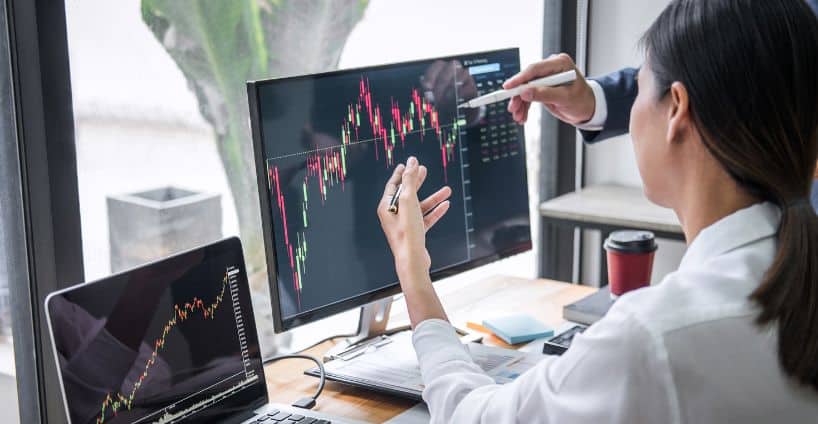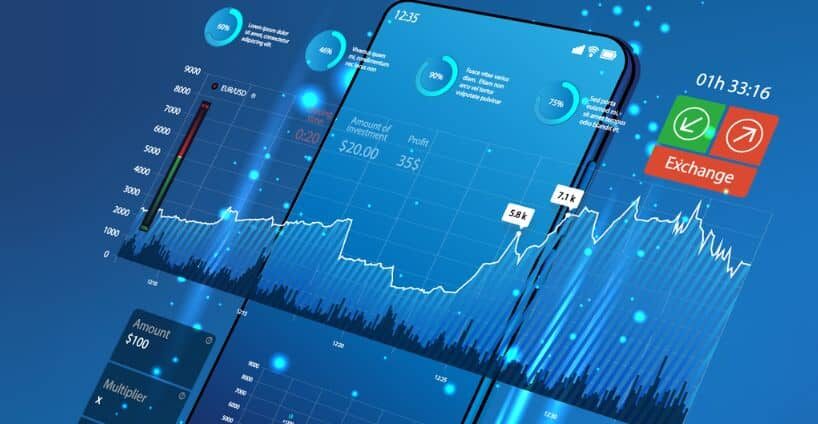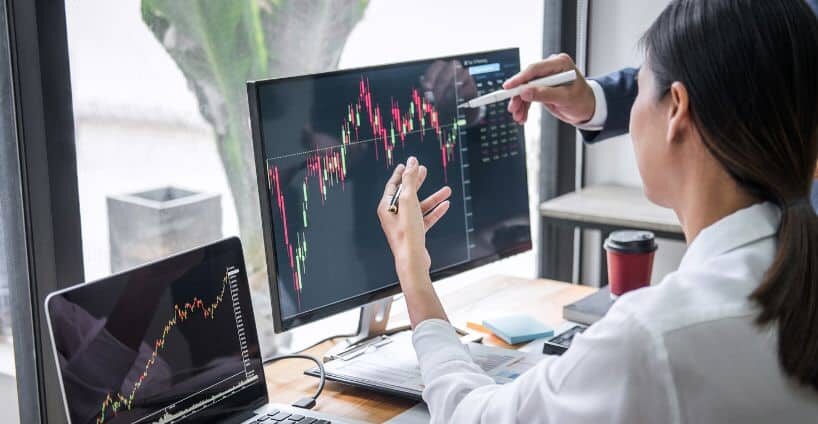Forex tips for long-term financial gains for the South African traders

Because of daily currency conversions, some currencies’ price changes might be unpredictable. Due to increased risk and the potential for big rewards, this volatility might make forex trading so alluring to traders. The finest trading conditions and the greatest likelihood of making a profit are factors traders consider when deciding which market to trade in South Africa. Several factors lead millions of traders worldwide to believe that the FX market meets these requirements in South Africa. Forex trading has a lot of advantages, such as flexible trading hours, strong liquidity, and the opportunity to trade on leverage.
Going through the long-term financial planning process enables decision-makers to concentrate on long-term goals, foster strategic thinking, and raise general financial literacy within a company. Long-term financial planning includes projecting revenues, costs, and other essential elements influencing the organization’s finances. Long-term financial planning fosters dedication and drive while acting as a decision-making framework. Anyone can proactively solve problems by knowing long-term patterns and potential risk factors affecting overall economic sustainability.
Understand the Basics of Forex Trading
In forex trading, a worldwide network of banks is dispersed across four significant forex trading hubs in various time zones – London, New York, Sydney, and Tokyo. All these countries run most of the forex market. Forex trading occurs directly between two parties in an over-the-counter (OTC) market instead of trading in commodities or equities. Most forex speculators do not aim to take receipt of the actual currency; instead, they predict exchange rates to profit from market pricing shifts.
Guessing the Price Movements
When someone buys or sells on the foreign exchange spot market, they do it in two underlying currencies. Because one currency is valued concerning another, all currencies are quoted in pairs. One of the traders will profit if the actual exchange rate on that day differs from the price of the futures contract. A futures contract is an agreement between traders to exchange currencies at a specific cost at a later date.
Yielding and Returns in Forex
A currency trader can earn income on the difference in interest rates between the currencies bought and sold. The most important thing to remember when trading currencies is that yield determines return. Every currency has an interest rate that that nation’s central bank determines. Carry traders anticipate making money from currency appreciation and the variance in interest rates among currencies. The carry trade, one of the most popular forex techniques, is made possible by yield return dynamics.
Fundamental Analysis
Traders use fundamental analysis to determine if a currency is overpriced or undervalued by closely examining a nation’s economic fundamentals. The various components of an economy’s data that might predict future trade and investment trends make fundamental analysis difficult. Retail sales, industrial production, GDP, the CPI, purchasing managers index data, inflation, housing statistics, and other vital variables can impact a nation’s economy and currency. Moreover, they use the data to attempt to predict how its value will change over time concerning other currencies. By focusing on a few key signs, it may be made simpler.
Trading Trends
Another well-known and typical forex trading approach is trend trading. The method entails determining an upward or downward trend in the currency price movement and then selecting the trading entry and exit locations. Also, it is simpler for beginners to comprehend and use.
Having a Trading Plan
A trading plan is necessary, especially when it comes to forex trading. Giving and taking are at odds when trading the markets. The experts are ready and make money from the rest of the crowd, who lack a strategy and frequently lose money after making costly errors.
- Mental Preparation
Mental preparation is essential since people tend to make many mistakes when confused and emotionally unstable. There should be no distractions in the trade space; remember that this is a business and that diversion may be expensive.
- Making a risk level
Trading style and risk tolerance will play a role in this. Risk levels can change, but generally, they should fall between 1% and 5% of the overall portfolio on any trading day. In other words, they exit the market and remain out if users lose that sum at any time throughout the day. If things aren’t going their way, it’s preferable to rest and continue fighting another day.
- Setting a Goal
Many traders won’t place a transaction until the potential reward outweighs the risk by at least three times. Establish monetary or percentage-based weekly, monthly, and yearly profit targets and review them often.
Choosing the Right Broker
Since forex is risky, choosing the best forex brokers in South Africa plays a vital role in trading. Choosing the right broker requires the following:
- Regulation: The first indication of a trustworthy and competent broker is often regulation. Customers’ money must be kept separate from licensed brokers’ working capital in segregated bank accounts. They also offer to occasionally examine the platform to ensure their trading services are fair and transparent. So to trade regulated forex brokers is a must.
- Market timing: In any industry, experience and a proven track record are essential traits, just like in forex. Over the years, a seasoned brokerage firm’s clientele has shown professionalism, competence, and trust.
- Overall reviews: Good ratings serve as a seal of approval for a broker’s dependability, while bad reviews act as a warning sign. Overall, testimonials from actual clients illuminate and may show customers if a broker is trustworthy.
- Security measures: Making money without running the danger of losing it is the explicit goal of forex trading. Trading with a broker who guarantees the security of your money and private information is crucial. The broker must use the most recent security measures and encryption technology to safeguard your money and personal information.
Practicing with a Demo Account
Practicing with a demo account can help new traders become familiar with the trading concept. It can also help experienced traders implement different trading strategies and know the various possibilities of implementing each. By creating a demo account, customers may experience trading on the platform without risking real money. In this method, people may learn how to open and complete trades and use various instruments, such as trading indicators and different order types.
Using Technical Analysis
Each security with a trading history can benefit from technical analysis. This includes stocks, futures, commodities, fixed-income, currencies, and other assets. Technical analysis is far more common in the commodities and currency markets, where traders pay attention to short-term price changes. A few examples of tradable assets frequently subject to supply and demand dynamics, which can be forecast using technical analysis, include stocks, bonds, futures, and currency pairs. In reality, some individuals believe that technical analysis consists solely of examining supply and demand dynamics as they appear in shifts in the market price of a security.
Managing Risk Effectively
Risk management is an essential skill for forex trading in South Africa. Two popular risk management strategies are Stop-Loss and Take-Profit. The Stop-loss (SL) level is the predefined price of an asset that is set lower than the current price and at which the position is terminated to prevent an investor from losing too much money on the trade. Conversely, a take-profit level (TP level) is a predetermined price at which traders exit a profitable position.
Traders can establish these levels to initiate automated selling without constantly watching the markets instead of utilizing real-time market orders. For instance, the stop-order functionality offered by Binance Futures combines take-profit and stop-loss orders. The system decides whether an order is a stop-loss or a take-profit based on trigger price levels and the last price or mark price when the order is placed.
Keep Learning and Adapting
Exercising adaptability as a forex trader is advantageous because the forex market is constantly changing. As there is a lot of market activity, traders must be vigilant and prepared for any circumstance. Users need the correct mentality to help them continue pushing forward, whether dealing with trade chances or unforeseen losses. One may improve their resilience and skill growth as a trader by becoming more adaptive. A more adaptive trader can foster positivity and discipline rather than opting not to adjust or admit failure. In the long term, this can expose people to fresh perspectives, help them become more skilled, and broaden their experiences in every trading scenario.
Conclusion
Growth cannot occur without change. Adjusting to various trading conditions in a turbulent forex market will make anyone a more resilient trader. The multiple facets and difficulties of trading may either improve or impair thinking. It may provide several possibilities for their trading approach to improving and being open-minded and adaptable when the currency market changes are preferable to being closed-minded or overly anxious. Also, it may inspire traders to think strategically and solve problems in more original ways.



